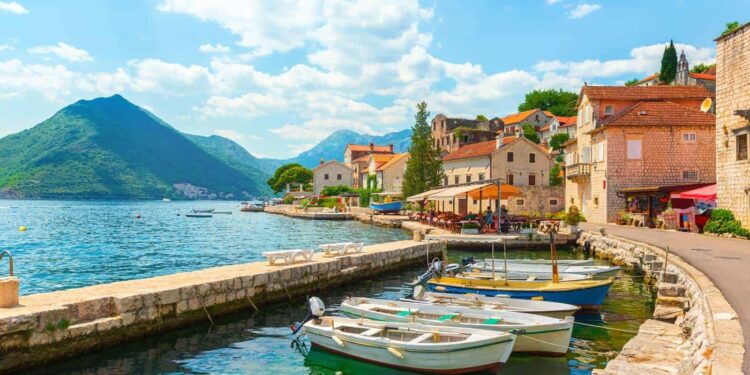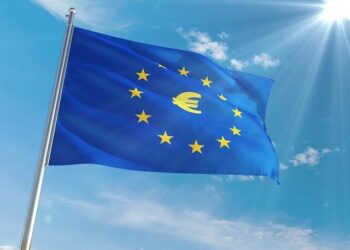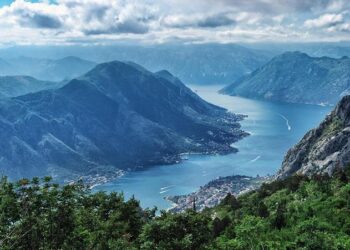Montenegro’s recent agreement to develop the Gulf of Kotor has captured the attention of policymakers across Europe, offering a timely strategic lesson for the European Union. As the EU grapples with complex geopolitical challenges and energy security concerns, Montenegro’s Gulf deal underscores the importance of fostering regional cooperation, leveraging natural resources, and balancing economic development with environmental stewardship. This article examines the implications of Montenegro’s approach and explores how the EU can draw valuable insights from this small Balkan nation’s strategic maneuvering.
Montenegro’s Gulf Deal Signals Shift in Balkan Geopolitics
The recent deal between Montenegro and key Gulf investors marks more than just an economic transaction-it represents a recalibration of influence in the Balkans. With the Gulf states steadily increasing their financial and infrastructural footprint, Montenegro is positioning itself as a critical gateway for investment and energy corridors extending into Europe. This development sends a clear message to Brussels: the EU cannot afford to treat the Western Balkans as a peripheral interest. The strategic implications are significant, as Montenegro’s embrace of Gulf capital challenges traditional European dominance in regional policymaking, underscoring a broader trend of diversification in alliances and partnerships.
Key areas impacted by the Gulf’s growing presence include:
- Infrastructure development: Ports, roads, and energy projects spearheaded by Gulf investors are accelerating Montenegro’s connectivity.
- Energy security: Collaboration on renewable and hydrocarbon projects offers an alternative source to traditional European suppliers.
- Political leverage: New financial ties translate into a stronger voice within regional diplomatic circles.
| Sector | Gulf Investment (2023, €M) | EU Funding (2023, €M) |
|---|---|---|
| Energy | 320 | 180 |
| Transport | 210 | 250 |
| Tourism | 150 | 120 |
For the European Union, this evolving landscape is a strategic wake-up call. While EU funds continue to support Balkan development, the influx of Gulf capital-often accompanied by swift execution and fewer political conditionalities-presents a competitive challenge. To maintain its influence, Brussels must refine its engagement strategies by matching the Gulf’s agility and offering more tailored partnerships. Otherwise, the EU risks losing its foothold in a region critical not only for stability but also for broader economic integration and security in Southeast Europe.
How Energy Partnerships Are Reshaping EU Influence in Southeast Europe
Montenegro’s recent venture into energy collaborations with Gulf states marks a bold pivot in Southeast Europe’s geopolitical tapestry. By securing investments and strategic partnerships in the energy sector, the country is not only boosting its own infrastructure but also signaling to the European Union the critical role smaller nations can play as energy gateways. These partnerships underscore the shift from traditional EU-centric influence towards a more complex, multi-vector dynamic where external actors bring fresh capital and leverage to the region’s energy landscape.
Key impacts of these energy alliances include:
- Enhanced energy security through diversified supply routes
- Attraction of foreign direct investments fostering regional development
- Rebalancing of geopolitical influence among EU, Gulf partners, and Russia
- Acceleration of renewable energy projects supported by Gulf capital
| Aspect | EU Influence | Gulf Partnership |
|---|---|---|
| Investment Capital | Moderate | High |
| Energy Infrastructure | Established | Expanding |
| Geopolitical Leverage | Traditional | Emerging |
| Renewables Focus | Growing | Strategic Priority |
EU Must Prioritize Strategic Engagement to Counter External Regional Dominance
Montenegro’s recent agreement with Gulf states offers a clear example of how smaller nations can leverage strategic partnerships to bolster economic resilience and political leverage in a crowded geopolitical landscape. The EU, facing intensified competition from external actors eager to expand their influence in the Western Balkans, must recognize that passive engagement is no longer sufficient. Instead, active diplomatic initiatives combined with targeted investments in infrastructure, energy, and digital connectivity must become central to EU policy in the region.
Success in this arena depends on a nuanced understanding of the diverse interests and identities within the Western Balkans. The issue is not solely about financial aid or security guarantees, but about fostering mutually beneficial relationships that respect sovereignty while advancing collective stability. Key strategic actions for the EU include:
- Developing multi-sectoral partnerships that integrate economic, security, and cultural dimensions.
- Enhancing early-warning systems and conflict-prevention mechanisms tailored to regional dynamics.
- Ensuring transparency and local ownership in all EU-backed projects to minimize perceptions of external imposition.
| Strategic Priority | Expected Outcome | Implementation Example |
|---|---|---|
| Economic Diversification | Reduced dependency on single external actors | Investment in green energy projects |
| Security Cooperation | Enhanced regional stability | Joint EU-Western Balkans training exercises |
| Cultural Engagement | Stronger societal resilience | Support for transnational educational programs |
The Conclusion
Montenegro’s recent agreement over its disputed gulf not only marks a significant step forward for the small Balkan state but also offers a broader strategic lesson for the European Union. As the bloc seeks stability and influence in a complex region, the deal underscores the importance of pragmatic diplomacy and local engagement. For the EU, Montenegro’s Gulf Deal serves as a timely reminder that fostering cooperation on regional disputes can pave the way for greater integration and security across southeastern Europe.
















